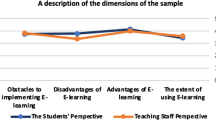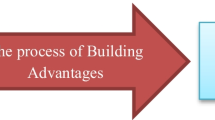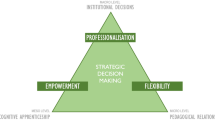Abstract
The last couple of years have witnessed a growing debate about online learning in higher education, notably in response to the global massive open online course (MOOC) phenomenon. This paper explores these developments from an institutional policy perspective, drawing on an analysis of the initial stages of different approaches to MOOCs and e-learning being taken up at three Australian universities. It points to four commonalities emerging from the institutional constructions of these initiatives including (1) the use of e-learning policy as a vehicle for curriculum redesign; (2) an emphasis on internal curriculum redesign as a core rationale for MOOCs; (3) a desire to capitalise on promotional opportunities but a reticence around wholly embracing the concept and structure of MOOCs and (4) the absence of access-driven concerns in university policy despite the prominence of such concerns in broader public debate. The approach is framed by a consideration of change dynamics in higher education and highlights the emphasis on internal university work within the policy narrative, suggesting this could represent an attempt to reframe the debate about MOOCs away from popular arguments about systemic disruption and instead use them to progress forms of change that align to broader strategic objectives.
Similar content being viewed by others
Notes
This paper is concerned with these later forms of MOOCs, and not with the earlier and subsequent forms developed under a connectivist learning model as these typically remain on the fringes of institution-level developments (see Daniel 2012).
The overview of these policies is based on documentary analysis of institutional strategy documents and websites, as well as some reporting of developing priorities in the interviews where eLearning-specific strategy documents were still being finalised.
Learning analytics is defined as “the measurement, collection, analysis and reporting of data about learners and their contexts, for purposes of understanding and optimizing learning and the environments in which it occurs” (see the Society for Learning Analytics Research (SOLAR) website: http://www.solaresearch.org).
References
Barber, M., Donnelly, K. & Rizvi, S. (2013). An avalanche is coming: Higher education and the revolution ahead. London: The Institute for Public Policy Research (IPPR). http://www.ippr.org/publication/55/10432/an-avalanche-is-cominghigher-education-and-the-revolution-ahead.
Barnett, R., & Coates, K. (2005). Engaging the curriculum in higher education. Maidenhead, Berkshire: Open University Press.
Christensen, G., Steinmetz, A., Alcorn, B., Bennett, A., Woods, D., & Emanuel, E. (2013). The MOOC phenomenon: Who takes massive open online courses and why? Pennsylvania: University of Pennsylvania. http://www.meducationalliance.org/sites/default/files/the_mooc_phenomenon.pdf.
Coursera (2013). About coursera. https://www.coursera.org/about.
Daniel, J. (2012). Making sense of MOOCs: Musings in a maze of myth, paradox and possibility. Journal Of Interactive Media In Education, 3(0). http://jime.open.ac.uk/2012/18.
de Freitas, S., & Oliver, M. (2005). Does E-learning policy drive change in higher education? A case study relating models of organisational change to E-learning implementation. Journal of Higher Education Policy and Management, 27(1), 81–95.
Karseth, B. (2006). Curriculum restructuring in higher education after the Bologna Process: A new pedagogic regime? Revista española de educación comparada, 12, 255–284.
Kizilcec, R. F., Piech, C., & Schneider, E. (2013). Deconstructing disengagement: Analyzing learner subpopulations in massive open online courses. In Proceedings of the third international conference on learning analytics and knowledge (pp. 170–179). New York: ACM.
Lombardi, M. M. (2013). The inside story: Campus decision making in the wake of the latest MOOC tsunami. MERLOT Journal of Online Learning and Teaching, 9(2), 239–248.
Maassen, P., Nerland, M., Pinheiro, R., Stensaker, B., Vabø, A., & Vukasović, M. (2012). Change dynamics and higher education reforms. In M. Vukasović, P. Maassen, M. Nerland, R. Pinheiro, B. Stensaker, & A. Vabø (Eds.), Effects of higher education reforms: Change dynamics (pp. 1–18). Rotterdam: Sense Publishers.
Maassen, P., & Stensaker, B. (2011). The knowledge triangle, European higher education policy logics and policy implications. Higher Education, 61(6), 757–769.
Muller, J., & Young, M. (2014). Disciplines, skills and the university. Higher Education, 67(2), 127–140.
Neely, P., & Tucker, J. (2010). Unbundling faculty roles in online distance education programs. The International Review of Research in Open and Distance Learning, 11(2), 20–32.
Olsen, J. P. (2007). The institutional dynamics of the European University. In P. Maassen & J. P. Olsen (Eds.), University dynamics and European integration (pp. 25–54). Dordrecht: Springer.
Pappano, L. (2012). The year of the MOOC. New York Times. http://www.nytimes.com/2012/11/04/education/edlife/massive-open-online-courses-are-multiplying-at-a-rapid-pace.html?pagewanted=all.
Ripley, A. (2012). College is dead. Long live college! Time Magazine. http://nation.time.com/2012/10/18/college-is-dead-long-live-college/.
Rizvi, F., & Lingard, B. (2010). Globalizing education policy. London and New York: Routledge.
Siemens, G., Irvine, V., & Code, J. (2013). Special issue on MOOCs: An academic perspective on an emerging technological and social trend. MERLOT Journal of Online Learning and Teaching, 9(2), iii–iv.
Stensaker, B., Maassen, P., Borgan, M., Oftebro, M., & Karseth, B. (2007). Use, updating and integration of ICT in higher education: Linking purpose, people and pedagogy. Higher Education, 54(3), 417–433.
UK Department for Business Innovation and Skills (BIS) (2013). The maturing of the MOOC: Literature review of massive open online courses and other forms of online distance learning. London, Department for Business Innovation and Skills. https://www.gov.uk/government/uploads/system/uploads/attachment_data/file/240193/13-1173-maturing-of-the-mooc.pdf.
Acknowledgments
The argument of the paper was developed in conversation with the author’s supervisors Professor Lyn Yates and Professor Fazal Rizvi. The research project is funded by a doctoral scholarship from the University of Melbourne and a top-up scholarship from the university’s Institute for a Broadband Enabled Society (IBES). The paper also draws on research conducted as part of the ARC Discovery Project ‘Knowledge Building in Higher Education: policy strategies and effects’ (DP110102466) led by Professor Lyn Yates. Thanks also to Peter Woelert for comments on an earlier version of the paper.
Author information
Authors and Affiliations
Corresponding author
Rights and permissions
About this article
Cite this article
O’Connor, K. MOOCs, institutional policy and change dynamics in higher education. High Educ 68, 623–635 (2014). https://doi.org/10.1007/s10734-014-9735-z
Published:
Issue Date:
DOI: https://doi.org/10.1007/s10734-014-9735-z




